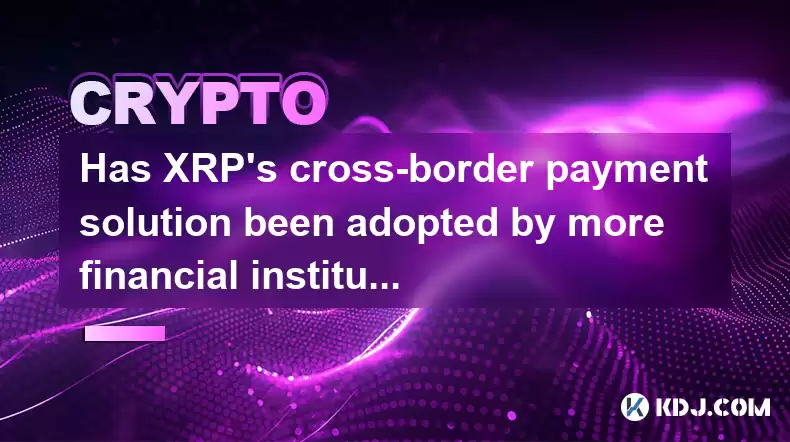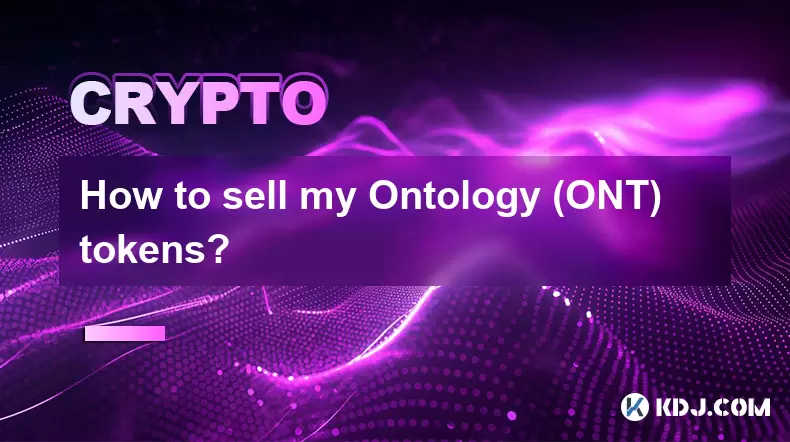-
 Bitcoin
Bitcoin $116400
-0.36% -
 Ethereum
Ethereum $4033
3.40% -
 XRP
XRP $3.302
-1.26% -
 Tether USDt
Tether USDt $1.000
-0.02% -
 BNB
BNB $796.1
1.67% -
 Solana
Solana $177.8
1.89% -
 USDC
USDC $0.9999
0.00% -
 Dogecoin
Dogecoin $0.2314
4.09% -
 TRON
TRON $0.3381
0.14% -
 Cardano
Cardano $0.7989
1.22% -
 Stellar
Stellar $0.4496
-1.84% -
 Chainlink
Chainlink $20.42
9.42% -
 Hyperliquid
Hyperliquid $41.17
0.88% -
 Sui
Sui $3.914
3.77% -
 Bitcoin Cash
Bitcoin Cash $584.7
1.52% -
 Hedera
Hedera $0.2632
-0.54% -
 Avalanche
Avalanche $24.09
3.40% -
 Ethena USDe
Ethena USDe $1.001
-0.02% -
 Litecoin
Litecoin $123.2
1.33% -
 Toncoin
Toncoin $3.318
-0.04% -
 UNUS SED LEO
UNUS SED LEO $8.984
-0.05% -
 Shiba Inu
Shiba Inu $0.00001323
2.85% -
 Uniswap
Uniswap $10.90
4.41% -
 Polkadot
Polkadot $3.999
3.34% -
 Dai
Dai $1.000
0.01% -
 Cronos
Cronos $0.1630
9.64% -
 Bitget Token
Bitget Token $4.484
0.82% -
 Monero
Monero $272.4
2.44% -
 Pepe
Pepe $0.00001173
6.03% -
 Aave
Aave $290.8
2.88%
Has XRP's cross-border payment solution been adopted by more financial institutions?
RippleNet's adoption by financial institutions is growing, but the SEC lawsuit and regulatory uncertainty hinder widespread XRP integration, despite its potential for faster, cheaper cross-border payments.
Mar 03, 2025 at 12:54 pm

Key Points:
- RippleNet's adoption by financial institutions is ongoing, but its pace and extent are subject to ongoing legal challenges and regulatory scrutiny.
- While several institutions utilize RippleNet for various cross-border payment needs, widespread, mainstream adoption remains limited.
- The success of XRP in facilitating these transactions is intertwined with the outcome of the SEC lawsuit against Ripple Labs.
- Factors beyond RippleNet's capabilities, such as regulatory hurdles and existing infrastructure, impact overall adoption.
Has XRP's cross-border payment solution been adopted by more financial institutions?
The question of whether XRP's cross-border payment solution, primarily facilitated through RippleNet, has seen increased adoption by financial institutions is complex. While Ripple actively promotes its network's growth, the answer isn't a simple yes or no. The situation is significantly impacted by the ongoing legal battle between Ripple Labs and the Securities and Exchange Commission (SEC). This uncertainty creates hesitation for some potential clients.
RippleNet, Ripple's payment network, offers various solutions for financial institutions seeking to streamline international transactions. These solutions leverage XRP, Ripple's native cryptocurrency, to enable faster and potentially cheaper transfers compared to traditional methods. However, the actual extent of XRP's utilization within RippleNet remains somewhat opaque.
Several financial institutions have publicly acknowledged using RippleNet for some of their cross-border transactions. These partnerships often highlight the speed and cost-effectiveness of the platform. However, it's important to differentiate between using RippleNet (which can utilize different payment methods) and specifically using XRP within that network. Many institutions may utilize RippleNet's other features without directly employing XRP.
The SEC lawsuit alleges that XRP is an unregistered security, significantly impacting its market position and potentially deterring financial institutions from fully integrating XRP into their operations. The uncertainty surrounding XRP's regulatory status is a primary factor inhibiting wider adoption. Many institutions are likely adopting a "wait-and-see" approach until the legal situation becomes clearer.
Even beyond the SEC lawsuit, several other factors contribute to the overall picture of adoption. Existing infrastructure within financial institutions can pose a significant hurdle. Integrating new technologies requires time, resources, and a thorough risk assessment. Moreover, varying regulatory landscapes across different jurisdictions add complexity and potential barriers to entry.
RippleNet offers different products, not all of which rely on XRP. This allows institutions to adopt parts of the system without committing fully to XRP. This flexibility is crucial, as it allows institutions to explore different payment options within the RippleNet ecosystem.
The future of XRP's role within RippleNet remains uncertain. A favorable outcome in the SEC lawsuit could significantly boost adoption. Conversely, an unfavorable ruling could severely hinder its growth. The situation is further complicated by the evolving regulatory environment for cryptocurrencies globally.
Here's a breakdown of how RippleNet functions in relation to XRP:
- On-Demand Liquidity (ODL): This is where XRP plays a central role. ODL facilitates faster and cheaper cross-border payments by utilizing XRP as a bridge currency. However, its use is dependent on participating institutions' willingness and ability to integrate XRP.
- RippleNet's other features: RippleNet also offers other solutions like tracking and settlement services that don't directly require the use of XRP. These features might be attractive to institutions even if they are hesitant about using XRP.
The adoption of RippleNet, and by extension XRP, is a gradual process affected by various intertwined factors. While some institutions are successfully utilizing the platform, widespread mainstream adoption is still contingent upon several key developments, particularly the resolution of the SEC lawsuit.
Frequently Asked Questions:
Q: Does every financial institution using RippleNet use XRP?
A: No. RippleNet offers various solutions, and while some leverage XRP for On-Demand Liquidity, others utilize different payment methods within the RippleNet infrastructure.
Q: What is the impact of the SEC lawsuit on XRP adoption?
A: The SEC lawsuit creates significant uncertainty, making many financial institutions hesitant to fully integrate XRP into their systems until the legal situation is resolved.
Q: Are there any other factors hindering XRP adoption beyond the SEC lawsuit?
A: Yes, existing infrastructure within financial institutions, regulatory hurdles in various jurisdictions, and the overall complexity of integrating new technologies all play a role.
Q: What are the advantages of using XRP for cross-border payments?
A: Theoretically, XRP offers faster transaction speeds and potentially lower costs compared to traditional methods, especially through ODL.
Q: What are the risks associated with using XRP for cross-border payments?
A: The primary risk is the regulatory uncertainty surrounding XRP, which could lead to future legal and financial complications for institutions using it.
Disclaimer:info@kdj.com
The information provided is not trading advice. kdj.com does not assume any responsibility for any investments made based on the information provided in this article. Cryptocurrencies are highly volatile and it is highly recommended that you invest with caution after thorough research!
If you believe that the content used on this website infringes your copyright, please contact us immediately (info@kdj.com) and we will delete it promptly.
- Shiba Inu (SHIB) in the Crypto Landscape: Community, Trends, and Future Outlook
- 2025-08-09 20:30:12
- Lasers in Modern Warfare: Iron Beam and the Future of Defense
- 2025-08-09 20:30:12
- Maxi Doge Presale: The Meme Coin That's Pumping Iron and Prices!
- 2025-08-09 19:10:11
- Rare Coin Warning: Don't Get Fooled by That 1p Coin!
- 2025-08-09 18:50:12
- Cardano, Unilabs, and Tron Price: Decoding the Latest Crypto Buzz
- 2025-08-09 18:30:12
- Aerodrome Finance: Price Targets and the Bullish Channel - What's Next?
- 2025-08-09 18:50:12
Related knowledge

Where can I buy UMA (UMA)?
Aug 07,2025 at 06:42pm
Understanding UMA and Its Role in Decentralized FinanceUMA (Universal Market Access) is an Ethereum-based decentralized finance (DeFi) protocol design...

How to buy Storj (STORJ) tokens?
Aug 09,2025 at 07:28am
Understanding Storj (STORJ) and Its Role in Decentralized StorageStorj is a decentralized cloud storage platform that leverages blockchain technology ...

What is the best app to buy Nano (NANO)?
Aug 09,2025 at 03:35am
Understanding Nano (NANO) and Its Unique FeaturesNano is a feeless, instant cryptocurrency designed for fast peer-to-peer transactions. Unlike many ot...

Where can I purchase Siacoin (SC)?
Aug 08,2025 at 11:14am
Understanding Siacoin (SC) and Its Role in the Sia NetworkSiacoin (SC) is the native cryptocurrency of the Sia decentralized cloud storage platform, a...

How to sell my Ontology (ONT) tokens?
Aug 09,2025 at 06:08pm
Understanding Ontology (ONT) and Its Trading EcosystemBefore selling your Ontology (ONT) tokens, it's essential to understand the nature of the crypto...

Where can I buy OMG Network (OMG)?
Aug 08,2025 at 12:57pm
Understanding OMG Network (OMG) and Its PurposeThe OMG Network, originally known as OmiseGO, is a layer-2 scaling solution built on the Ethereum block...

Where can I buy UMA (UMA)?
Aug 07,2025 at 06:42pm
Understanding UMA and Its Role in Decentralized FinanceUMA (Universal Market Access) is an Ethereum-based decentralized finance (DeFi) protocol design...

How to buy Storj (STORJ) tokens?
Aug 09,2025 at 07:28am
Understanding Storj (STORJ) and Its Role in Decentralized StorageStorj is a decentralized cloud storage platform that leverages blockchain technology ...

What is the best app to buy Nano (NANO)?
Aug 09,2025 at 03:35am
Understanding Nano (NANO) and Its Unique FeaturesNano is a feeless, instant cryptocurrency designed for fast peer-to-peer transactions. Unlike many ot...

Where can I purchase Siacoin (SC)?
Aug 08,2025 at 11:14am
Understanding Siacoin (SC) and Its Role in the Sia NetworkSiacoin (SC) is the native cryptocurrency of the Sia decentralized cloud storage platform, a...

How to sell my Ontology (ONT) tokens?
Aug 09,2025 at 06:08pm
Understanding Ontology (ONT) and Its Trading EcosystemBefore selling your Ontology (ONT) tokens, it's essential to understand the nature of the crypto...

Where can I buy OMG Network (OMG)?
Aug 08,2025 at 12:57pm
Understanding OMG Network (OMG) and Its PurposeThe OMG Network, originally known as OmiseGO, is a layer-2 scaling solution built on the Ethereum block...
See all articles

























































































